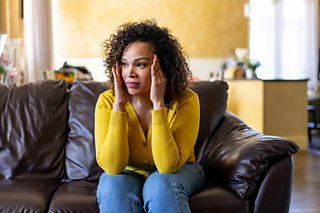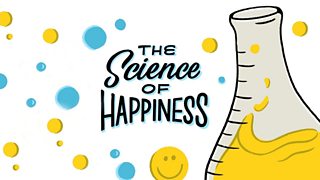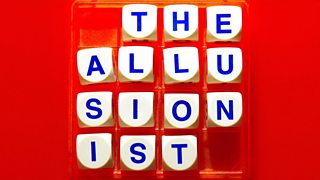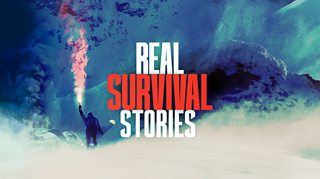How to think differently about anxiety
Anxiety and depression have affected many of us – and the prevalence of both rose dramatically during the pandemic, according to a variety of publications.
In The Science of Happiness, the podcast which can help you learn research-tested strategies for a happier, more meaningful life, host Dacher Keltner is joined by comedian Aparna Nancherla and psychologist Tracy Dennis-Tiwary to explore new ways to view and cope with anxiety.
Anxiety isn’t necessarily visible.
Aparna Nancherla is a comedian who has often explored her anxiety on stage. As she points out, anxiety doesn’t have to show itself externally. “When I saw examples of anxiety and culture, it seemed very outward focused, and you can see how nervous the person is. That didn't really fit me. I think [my anxiety] is very internal,” she says.
“Now we've gotten to this place where there are so many spheres that feel like they're kind of spiraling; whether it's the environment or politics or the economy or the pandemic. And I think anxiety has become almost like a shorthand for: ‘All of these things are going badly’.”
Anxiety can be a sign of hope for the future.
For most of us, anxiety feels like something we need to prevent or avoid –β€―but this may be making us even more anxious, says Tracy Dennis-Tiwary, author of Future Tense: Why Anxiety is Good for You.
“Anxiety is nervous apprehension about the uncertain future. It's making us into mental time travellers into the future, where we have to use one of the great achievements of human evolution, which is the ability to hold in mind and to simulate something that has not happened yet, and to hold in mind that there could be something bad coming. But there could also simultaneously be something good.
“What anxiety does is prime us to navigate that uncertainty, to avert disaster and to make the positive possibilities into reality.”
There’s no use in avoiding anxiety altogether.
Dennis-Tiwary says it would be a mistake to try to lead an anxiety-free life – firstly, because it’s impossible.

“Anxiety is a feature of being human. I think we might still be in caves if it weren’t for anxiety. It inhabits that same space that creativity does. It's that bridge between where we are now and where we want to be.
“One analogy I love is that of a smoke alarm in your house. We could just put earplugs in or go to a different room in the house, but that's not what we do. We also don't necessarily take it as a call to panic – but we take it as a call to investigate. And what anxiety does.
“It's saying, Okay, you have this uncertain future, and when you're anxious, it's telling you that you care about that future, because you can't ignore it, and you need to investigate. When you think about anxiety as this information that you really need to pay attention to, you also realise that it means that you're still hopeful about that future.”
There are three principles Tracy Dennis-Tiwary recommends for dealing with anxiety.
“The first principle is, anxiety is information. Listen to it.
“The second principle is, sometimes anxiety is not useful. Let go of it and immerse yourself in the present again. Let go of that future tense.
“Third principle is, if you've decided that there’s useful information [in your anxiety], then hitch it to a sense of purpose.
“It's like a wave. You can drown in anxiety. But you can learn to swim, and maybe if you keep working at it, you can surf.”
-
![]()
The Allusionist
An entertainment show about how language works and why we should care.
-
![]()
Sliced Bread
Greg Foot investigates the so-called wonder products making bold claims.
-
![]()
Real Survival Stories
True stories of ordinary people thrust into extraordinary survival situations.
-
![]()
CafΓ© Hope
Where guests pop in for a brew and a chat to tell us what they're doing to make the world a better place.





